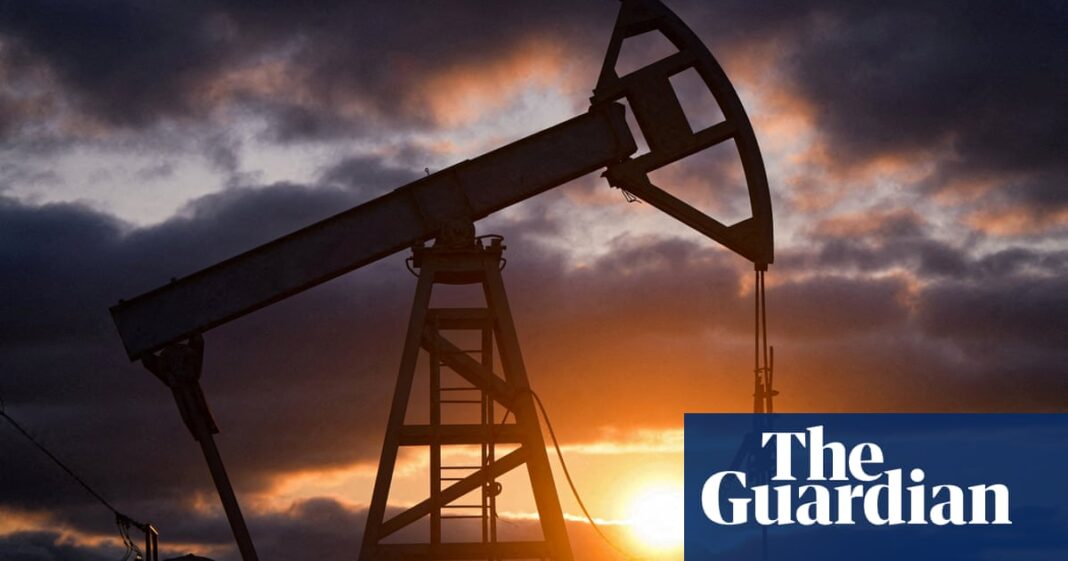The UK and its G7 allies are considering tightening the “meaningless” cap on Russian oil export prices after Donald Trump’s trade war caused global oil markets to crash.
UK Treasury officials are understood to be actively considering plans to lower the $60 (£46) a barrel cap on Russian oil exports after the market plunged to $59.77 a barrel for the first time in more than four years this week.
The G7 capped the price of Russian oil exports in late 2022 – when oil traded at well over $100 a barrel – to limit the oil revenues that Moscow could put towards its war efforts in Ukraine.
But experts have warned the plan was “currently meaningless” after a steep fall in the global oil markets. It had already become increasingly irrelevant as Russia found loopholes to sell its crude at normal market rates, they added.
The Guardian understands the UK is now working alongside its international partners to find a way to use the price cap to safeguard Ukraine against the Russian war machine while pushing the Kremlin to engage in a peace process in good faith.
The UK government was approached for comment.
The cap effectively barred all G7 and EU nations from purchasing Russian barrels above $60 – or providing shipping, insurance, brokering, trade finance and other support services for any deals done above this price.
But Russia was able to bypass the cap through a series of loopholes including the use of a shadow fleet of ageing oil tankers to carry cargoes at the usual market rates.
The cap applied to around half of Russia’s seaborne oil cargoes when it was first introduced, according to analysis by the commodity data provider S&P Global Platts, but about 80% was sold beyond the reaches of the gap by the end of last year.
“The cap is currently meaningless,” said Clayton Seigle, a senior fellow at the Center for Strategic and International Studies in Washington DC. He told the Guardian that the G7 should consider “tightening the screws” on the Kremlin by lowering the price below $60 a barrel.
“There might be a willingness within the G7 to do this to punish Moscow, especially because there are no real fears about leaving the oil market under-supplied,” he added.
after newsletter promotion
Tom Keatinge, a director at the Royal United Services Institute, a defence and security thinktank, said: “It’s time to revisit the whole way in which we try to restrict Russia’s income from hydrocarbons. Whatever anyone might say, it doesn’t really seem to be working.”
Global oil market prices tumbled by almost a fifth in the days since the US president set out sweeping global trade tariffs amid fears that a trade war could trigger a global economic recession which would sap demand for energy.
The international oil benchmark fell from almost $75 a barrel last week to under $60 a barrel on Wednesday. The price climbed to above $65 on Thursday after Trump announced a 90-day pause on tariffs, aside from those levelled against China.


